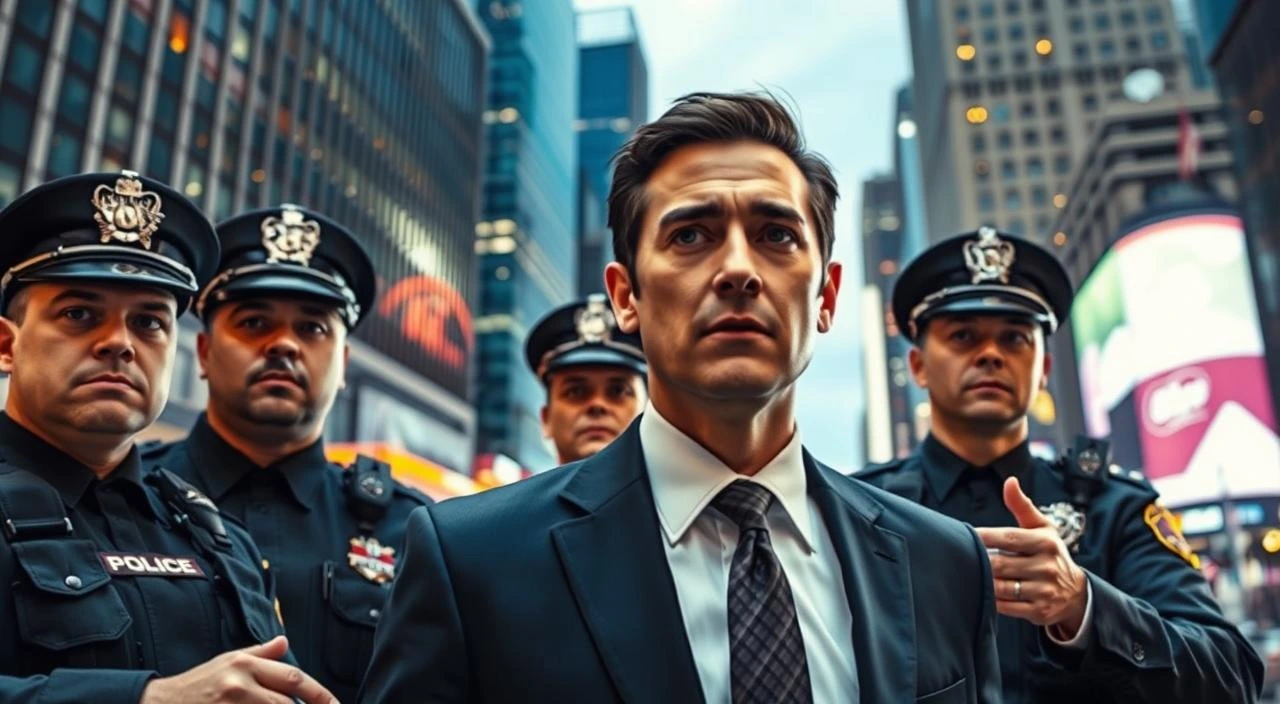Did you know 6.6% of people born in the U.S. in 2001 might go to prison? This shows how important it is to know your rights, even when you’re dressed up.
In this article, we’ll look at what happens when you get arrested while wearing nice clothes. We’ll cover everything from your rights to what your boss says about what you wear. We’ll see how what you wear can affect how police treat you and what legal trouble you might face.
Key Takeaways
- The U.S. Equal Employment Opportunity Commission (EEOC) has issued guidance on the use of criminal records in employment decisions, focusing on discrimination based on race and national origin.
- Employers must ensure that any criminal record exclusions are job-related and consistent with business necessity, as per Title VII of the Civil Rights Act of 1964.
- Arrests alone do not automatically justify adverse employment actions, as the underlying conduct should be considered along with factors like the nature of the crime, job duties, and time elapsed.
- Unnecessary disclosure of an employee’s arrest information could lead to defamation lawsuits, and discrimination lawsuits often stem from alleged differential treatment related to attendance policies and employee arrests.
- Employers in states with at-will employment policies need to be aware of exceptions that may limit their ability to terminate based on arrests.
Introduction to Arrests and Business Attire
In recent years, more Americans have had dealings with the criminal justice system. This has led to worries about job discrimination. Employers using someone’s criminal history in hiring or keeping them might break the law.
Overview of Arrests and Professional Clothing
Police and employers need to know how business attire affects arrests and criminal records. How people dress in formal business wear or corporate appearance can matter a lot. It can affect how they are treated by police and in court.
Importance of Understanding Legal Implications
It’s key to understand the legal side of workplace dress code violations, office attire and criminal charges. Knowing about suit and tie offenses or business casual and legal consequences is important. It helps both individuals and those in charge. They need to think about executive dressing and arrests and how corporate appearance and law enforcement meet.
“The way individuals present themselves in formal business wear or corporate appearance can have significant implications during encounters with law enforcement and within the criminal justice system.”
Constitutional Protections and Peace Officer Responsibilities
As a peace officer, knowing the U.S. Constitution’s key amendments is vital. These amendments set limits on your power and protect people’s rights. The Fourth Amendment deals with search and seizure, the Fifth Amendment with self-incrimination, the Sixth Amendment with the right to counsel, and the Fourteenth Amendment with due process and equal protection. You also need to know about federal civil rights statutes that fight discrimination.
The Fourth Amendment limits government searches without a warrant. The Fifth Amendment lets everyone stay silent when questioned. The Sixth Amendment ensures the right to a lawyer after arrest. The Fourteenth Amendment ensures fairness and equal treatment under the law.
It’s your duty as a peace officer to respect these rights. Not doing so can lead to legal trouble for you and your agency.
“The rights of every man are diminished when the rights of one man are threatened.” – John F. Kennedy
Understanding and upholding these rights is key to earning community trust. By protecting individual rights, you help create a safer, fairer society for everyone.
Consensual Encounters and Professional Appearance
In law enforcement, consensual encounters don’t always need suspicion or probable cause. But, wearing professional attire can change how the meeting is seen. It might even turn into a detention or arrest. Officers need to think about how someone’s look and actions affect the meeting.
Wearing professional clothes shows the officer you’re law-abiding and willing to cooperate. This can lead to a better and more helpful meeting. It helps keep the talk respectful and productive, building trust and making sure everyone follows the rules.
- Consensual encounters do not require reasonable suspicion or probable cause.
- Professional attire, such as business attire, can impact how the encounter is perceived.
- Officers must consider how appearance and behavior can influence the nature of the interaction.
- A professional appearance can signal law-abiding and cooperative behavior.
- Elevating consensual encounters through professional conduct and appearance can foster trust and compliance.
Knowing about consensual encounters and professional appearance helps both sides. It makes meetings better and builds a stronger bond between the community and police. This knowledge is key to a better relationship between them.
can you be arrested in business attire
Reasonable Suspicion and Business Attire
Wearing business attire doesn’t stop a police officer from detaining someone. Reasonable suspicion comes from all the facts, including what someone is wearing. Their clothes, like a suit, can play a part in the officer’s decision.
In Chicago, breaking a noise law can cost you $300 for the first time. If it happens again within a year, it’s $500. After that, it’s $1000 each time. Even in a suit, if an officer has other reasons to think a crime is happening, they can detain you.
Appropriate Actions During Detentions
When detaining someone, police must act right. They can do limited searches and use only the force needed. They also have to protect your rights and your clothes, like your suit.
The 14th Amendment of the U.S. Constitution protects everyone’s rights. This means police must always think about your rights, no matter what you’re wearing.
“Courts in the United States may have dress codes, and it is important to dress right for the situation. Avoid things like ripped clothes, sneakers, flip flops, sunglasses, and shorts in court.”
To sum up, wearing business clothes doesn’t mean you can’t be detained. But police must act right and respect your rights. It’s key for everyone to know the rules about arrests and what to wear.
Probable Cause for Arrest and Professional Clothing
Wearing a suit or business dress doesn’t mean you can’t be arrested. The decision to arrest depends on many factors. What you wear is just one thing an officer might look at.
But, officers must make sure arrests are fair. They need to have good reasons for arresting someone, even if they look professional. They must explain why they think there’s enough evidence to arrest someone.
- Driveway Finance: Easy Solutions for Your Home
- Dallas Cowboys Trade Rumors: Latest NFL Updates
- Probable cause is the legal standard that allows a peace officer to make an arrest, search a person or their property, or obtain a warrant.
- Reasonable suspicion, a lower standard, permits officers to conduct a brief investigative stop and frisk.
- The totality of the circumstances, including an individual’s appearance and behavior, are evaluated to determine if probable cause or reasonable suspicion exists.
The laws about arrests and searches are complex and keep changing. Officers need good training. They must always follow the law, no matter what someone is wearing.
| Probable Cause for Arrest | Reasonable Suspicion for Investigative Stop |
|---|---|
| Highest legal standard for making an arrest | Lower legal standard for conducting a brief investigative stop and frisk |
| Requires officers to have facts and circumstances that would lead a reasonable person to conclude the suspect committed a crime | Requires officers to have specific and articulable facts that lead them to reasonably suspect criminal activity |
| Allows for a full custodial arrest and search incident to arrest | Permits a brief detention and limited search for weapons if there is a reasonable fear for the officer’s safety |
Knowing the laws about arrests helps everyone. It ensures that everyone’s rights are respected, no matter what they’re wearing.
Warrantless Arrests and Business Attire
Peace officers can arrest people without a warrant, no matter what they’re wearing. This includes business attire. The arrest can be for misdemeanors or felonies. The situation, like entry into a dwelling, affects the arrest steps.
Misdemeanors and Felonies
Officers can arrest for both misdemeanors and felonies without a warrant. The crime and the situation decide the arrest rules.
Entry into a Dwelling
Entering a dwelling for a warrantless arrest needs extra rules. The officer must have good reason and follow specific rules for homes, no matter the suspect’s clothes.
Even in business attire, a person can’t avoid a lawful warrantless arrest. Officers must follow the law carefully, for any crime or entry into a dwelling.
“The Court has upheld a search incident to an illegal arrest where an arrest based on probable cause, even for a minor offense, will not violate the Fourth Amendment.” (Virginia v. Moore, 2008)
Miranda Warnings and Business Attire
Providing Miranda warnings is not based on what someone is wearing, like business clothing. These warnings are needed for anyone in custody who is being questioned. It’s important for police to know when to give these warnings, even if someone looks like they’re in business attire.
The Berkemer (1984) case said Miranda warnings aren’t needed for a quick stop by an officer who suspects a crime but doesn’t have enough to arrest. The officer can ask questions without giving Miranda warnings. The Manis (1969) case also said that if a stop is short and based on suspicion, Miranda warnings might not be needed right away.
But, the People v. Lopez (1985) and People v. Hubbard (1970) cases show that during a routine traffic stop, an officer can ask about illegal items without Miranda warnings if they have evidence. A short detention might not need Miranda warnings either.
Many court cases have dealt with the issue of not giving Miranda warnings. This can lead to statements being thrown out or even the whole case being dismissed. It’s very important for police to know when to give these warnings, no matter what someone is wearing or the arrest procedures.
| Case Name | Key Ruling |
|---|---|
| Berkemer (1984) | Miranda warnings not required on temporary detention for investigation by an officer lacking probable cause, but who has reasonable suspicion of a crime. |
| Manis (1969) | Temporary detention without arrest justified by suspicious circumstances may not require Miranda warnings until the suspect is taken into custody. |
| People v. Lopez (1985) | During a routine traffic stop, an officer can ask about possible contraband without a Miranda warning if there is evidence. |
| People v. Hubbard (1970) | Evidence obtained through questioning during a traffic stop without Miranda warnings may be admissible if the detention is brief and minimal in restraint. |
The Miranda v. Arizona (1966) case made it clear that statements made during questioning when someone is in custody can only be used if they know their rights and choose to give up those rights. The Miranda warning tells the person their right to stay silent, that anything they say can be used against them, their right to an attorney, and how to get a lawyer if they can’t afford one.
Knowing and using Miranda rights is key to avoiding saying something that could hurt you when talking to the police. This is true no matter what you’re wearing or the arrest procedures involved.
Employer Dress Codes and Legal Issues
Employers can set dress codes for their workers. But, these rules must be fair and applied the same to everyone. They can’t unfairly target certain groups, even if it’s not on purpose. Also, they must make special arrangements for people’s religious or disability needs.
Discrimination Concerns
Dress codes that unfairly affect one gender or certain groups might be illegal. It’s important for employers to make sure their rules are fair for everyone in the same job.
Religious and Disability Accommodations
Employers must make reasonable changes for workers’ religious or disability needs. This is true unless it would really hurt the business. Thinking carefully about these changes is key to avoiding legal trouble.
It’s vital for employers and employees to know the laws about dress codes. Following these laws and making fair adjustments helps keep the workplace professional and safe from legal issues.
| Dress Code Considerations | Legal Implications |
|---|---|
| Uniform enforcement across all employees | Avoiding discrimination claims |
| Allowance for religious and disability accommodations | Compliance with anti-discrimination laws |
| Consistent application regardless of gender | Preventing unintentional gender discrimination |
| Reasonable business justification for dress code rules | Maintaining legally sound workplace policies |
“Over the five fiscal years (FY) ending with FY 2023, more than one-third of the charges of employment discrimination received by the Equal Employment Opportunity Commission included an allegation of unlawful harassment based on race, sex, disability, or another statutorily protected characteristic.”
Conclusion
Business clothes and arrest rules are a tricky mix. It’s important for police and bosses to know their stuff. They need to understand laws and rights to treat everyone fairly, no matter what they wear.
Many small business owners have faced problems with work clothes. Jeans are often the issue. Also, lots of workers don’t know what their company expects them to wear. This shows how important it is to talk about dress codes clearly.
What you wear can really affect how others see you. This is true at work and in court. Knowing the laws about arrests and clothes helps you stay safe and look good. It’s all about being smart and confident in how you dress.
FAQ
Can wearing business attire impact how a peace officer interacts with an individual?
Yes, wearing business attire can change how a peace officer interacts with someone. It might make the encounter seem more formal. This could turn a simple stop into a detention or arrest.
Does wearing business attire prevent a peace officer from having reasonable suspicion to detain an individual?
No, business attire doesn’t stop a peace officer from detaining someone. Reasonable suspicion comes from all the facts, including what someone is wearing.
Can a peace officer arrest an individual solely based on their professional attire, such as business clothing?
No, just wearing business clothes doesn’t mean a peace officer can arrest you. They need solid reasons, like probable cause, to arrest. They must also respect your rights.
Are there any legal considerations for peace officers when making warrantless arrests of individuals in business attire?
Yes, peace officers can arrest without a warrant for some crimes, no matter what you’re wearing. But, the type of crime and how it happened can affect the rules they must follow.
Does an individual’s business attire affect the requirement for peace officers to provide Miranda warnings?
No, Miranda warnings are needed only if someone is in custody and being questioned. What you’re wearing doesn’t change that.
Can an employer’s dress code policies lead to legal issues, even if unintentional?
Yes, employers can face legal trouble if their dress codes unfairly target certain groups. They must make sure their rules are fair and don’t discriminate. They also need to make exceptions for religious or disability reasons.

My name is Jakir, I am a content writer, content creator, I give business, sports, finance, trending news and I have 10 years of experience in this and this is my blog goldennews24.com.










